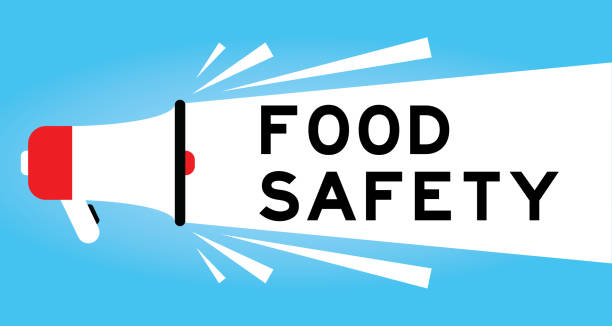ISO 22000 Certification: Drive Food Safety Excellence Across Operations
I. Introduction to ISO 22000 Certification
A. Overview of ISO 22000 and its significance in food safety management.
ISO 22000 is an internationally recognized standard for food safety management systems (FSMS) that sets out the requirements for ensuring the safety of food at every stage of the supply chain. It provides a framework for organizations to manage food safety risks, from production and processing to distribution and consumption. The standard combines key elements from various food safety management systems, including hazard analysis and critical control points (HACCP), and integrates them with general management system requirements, such as continuous improvement and risk management.ISO 22000 enables organizations to identify potential food safety hazards, implement controls to prevent them, and monitor these controls to ensure consistent food safety.
II. Who Should Pursue ISO 22000 Certification?
A. Food manufacturers, suppliers, and distributors.
Food manufacturers, suppliers, and distributors are primary candidates for ISO 22000 certification, as they play a critical role in ensuring the safety of food products at various stages of production and distribution.These organizations are directly responsible for the safety, quality, and integrity of the food they produce or supply.By adopting ISO 22000, food manufacturers can establish a structured food safety management system (FSMS) that identifies potential hazards, implements preventive measures, and monitors food safety throughout the production process.For suppliers and distributors, the certification provides assurance that they are adhering to internationally recognized standards, making their operations more reliable and trustworthy.ISO 22000 certification enables these businesses to not only meet regulatory requirements but also enhance their competitive edge by demonstrating their commitment to safe food production and consumer health.
B. Companies looking to enhance food safety and meet consumer expectations.
Companies aiming to enhance food safety and meet increasing consumer expectations can benefit greatly from ISO 22000 certification.In today’s competitive marketplace, consumers are becoming more aware of food safety issues and are demanding higher standards from the products they purchase.Companies that prioritize food safety through ISO 22000 certification not only improve their operational processes but also enhance their reputation among consumers, suppliers, and regulators.The certification provides a clear, internationally recognized standard for food safety management that helps businesses address consumer concerns, mitigate risks, and ensure the quality of their products.As consumer expectations continue to evolve, obtaining ISO 22000 certification demonstrates a company’s dedication to maintaining high food safety standards, ensuring compliance with legal requirements, and fostering long-term consumer trust.
III. ISO 22000 and Consumer Confidence
A. How ISO 22000 helps improve consumer confidence in food products.
ISO 22000 plays a crucial role in improving consumer confidence in food products by ensuring that rigorous safety standards are met throughout the entire food supply chain.With increasing awareness about foodborne illnesses and contamination, consumers are more concerned than ever about the safety and quality of the products they purchase.ISO 22000 provides a systematic framework for organizations to identify and control food safety hazards, from production to distribution.By implementing and maintaining this certification, companies demonstrate their commitment to preventing risks and maintaining the highest standards of hygiene, traceability, and quality control.This transparency and accountability give consumers confidence that the food they consume is safe, helping to build trust between food producers and the public.
B. The role of food safety certification in influencing purchasing decisions.
Food safety certification, such as ISO 22000, significantly influences purchasing decisions by reassuring consumers that the products they buy are safe and of high quality. Certification provides tangible proof that a company has met internationally recognized standards for food safety, which can be a key differentiator in a crowded market.For consumers, a certified food product signals a commitment to quality, reliability, and transparency, which can influence their purchasing preferences.As food safety concerns become more prevalent, certifications like ISO 22000 help consumers make informed decisions, choosing products that they trust and feel confident about.Furthermore, food safety certification can also attract businesses that require assurance from their suppliers, fostering long-term relationships and enhancing a company’s reputation in the industry.
IV. Cost Considerations for ISO 22000 Certification
A. Understanding the costs associated with obtaining ISO 22000 certification.
Understanding the costs associated with obtaining ISO 22000 certification is an important first step for any business considering this certification. The financial investment required for certification typically includes the costs of hiring consultants or experts, training staff, updating systems and processes to meet the standard’s requirements, and paying for external audits. Additionally, there may be ongoing costs for maintaining certification, including periodic audits and system reviews to ensure compliance with the standard.These upfront and ongoing expenses can vary depending on the size and complexity of the organization, as well as its current food safety practices.However, it is important to recognize that these costs represent an investment in the long-term sustainability and reputation of the business, with a strong potential return in terms of consumer trust and operational efficiency.
B. How businesses can balance the costs with the long-term benefits of certification.
Balancing the costs of ISO 22000 certification with its long-term benefits is key to making a sound financial decision for any business.While the initial costs may seem significant, the benefits of certification can far outweigh the expenses over time.ISO 22000 helps businesses streamline their processes, improve food safety management, and reduce the risk of costly food recalls, legal issues, and reputational damage.Certification can also open doors to new markets, as consumers and business partners often prioritize companies that have demonstrated a commitment to food safety.Moreover, organizations with ISO 22000 certification may experience increased customer loyalty and a competitive edge in the marketplace, which can lead to greater sales and business growth.When viewed as a strategic investment, the costs of obtaining ISO 22000 certification are often justified by the long-term value it provides.
C. Financial incentives and potential savings achieved by reducing food safety risks.
Financial incentives and potential savings achieved by reducing food safety risks are another important factor for businesses to consider when pursuing ISO 22000 certification. By identifying and addressing food safety risks proactively, companies can avoid costly recalls, minimize liability from foodborne illnesses, and reduce waste from spoiled or contaminated products. Additionally, by implementing more efficient processes and systems, businesses may experience cost savings in areas like waste management, energy use, and resource consumption. ISO 22000 also helps companies optimize their supply chain by promoting better communication and collaboration with suppliers, which can result in reduced operational costs. Many governments and organizations offer financial incentives, such as tax credits or grants, to businesses that adopt certified food safety practices, further enhancing the financial advantages of ISO 22000. Ultimately, the certification not only protects businesses from potential financial losses but also positions them for long-term savings and growth.


